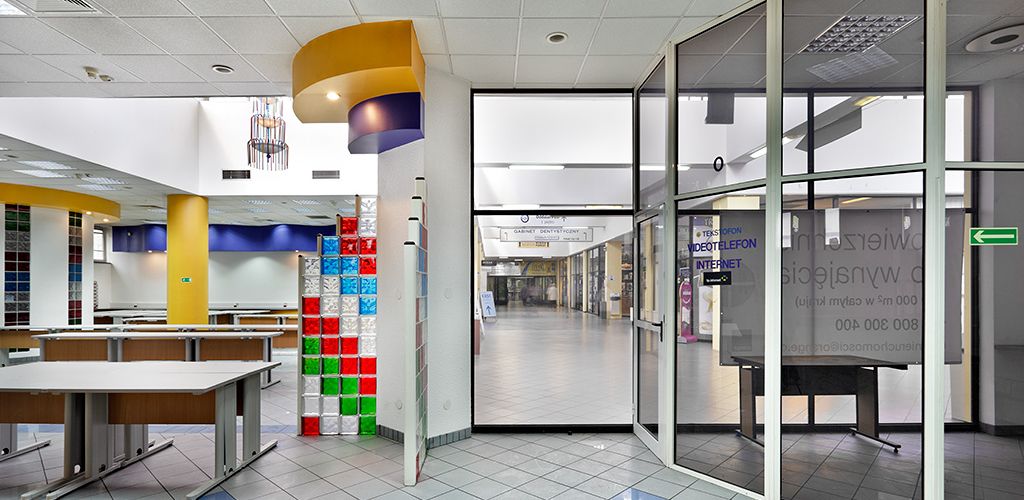What is a commercial premises?
The characteristics of commercial premises are defined by the Regulation of the Minister of Infrastructure of 12 April 2002 on the technical requirements for buildings and their location. According to this regulation, commercial premises are a part of a building:
- containing one room or a complex of rooms,
- separated by permanent building partitions
or an entire building that is not a flat, technical room or utility room.
Commercial premises It is usually intended for commercial purposes. It is used for business activities, such as catering. However, it can also serve other purposes, such as cultural or sports.
Is it worth renting commercial premises?
There are various types of commercial premises available on the market. They are classified according to their purpose. These include:
- commercial and service buildings and premises, e.g. shops, pharmacies,
- office buildings and premises,
- buildings and production premises, e.g. production halls,
- buildings and rooms intended for short-term accommodation, e.g. hotels, guesthouses,
- public buildings, e.g. offices, theatres, sports halls.
The wide range of this type of property offers numerous business opportunities. Is it worth renting commercial premises? It depends on many factors. Consider your business profile, stage of development, and financial resources. Renting allows you to profit from your business and optimize investment costs. It provides you with a fixed monthly rent, but it comes with certain responsibilities.
To increase investment profitability, it's best if the property is located in an attractive location with extensive and modern infrastructure. This location can enhance the commercial success of some businesses, especially beauty salons and hairdressers.
What are the obligations of a landlord of commercial premises?
The obligations of the parties are defined in a commercial premises lease agreement. It may be concluded for a period of:
- specified,
- indefinite.
The most important obligations of a tenant of commercial premises include:
- Handing over the commercial premises – this includes not only handing over the keys to the premises but also ensuring the premises are in proper technical condition, including functional installations and access to electricity. The premises should be in a condition suitable for the agreed-upon use. Unless otherwise specified in the agreement, the premises must be in accordance with the characteristics and intended use of the premises for the duration of the lease.
- Ensuring the right to use the commercial premises – maintaining it in appropriate condition throughout the duration of the contract.
- Major repairs, including repairs to installations and structural components, will be the responsibility of the tenant. Minor repairs, such as replacing a light bulb, will be the responsibility of the tenant.
The obligations of the lessor of commercial premises correspond to his rights arising from the contract, i.e., among others, to:
- Rent collection – the tenant typically pays monthly in advance, e.g., by the 15th of each month. Due to the nature of the commercial premises, the rent is subject to indexation. This ensures that it reflects the actual value of the property, given any changes in the purchasing power of money. This takes the form of an indexation clause in the contract. The calculation basis is usually the price index for goods and services, published on the Central Statistical Office website.
- Enforcing additional fees – this includes utility fees, such as electricity and water. The parties may also agree to include other costs, such as an appropriate portion of property tax, in these expenses.
The landlord and the tenant may freely, but within the limits of the law, determine their rights and obligations, including the conditions for terminating the contract.
Can commercial premises be used for residential purposes?
Commercial premises cannot be used for residential purposes, even if they are equipped and do not require renovation. Their specific nature prevents this. An alternative, if you need space to run a business and live in at the same time, is a commercial-residential building .
Read also: Is it possible to transform a commercial premises into a residential one?
Looking for investment property? Real estate sales - online offers | Orange Nieruchomości
